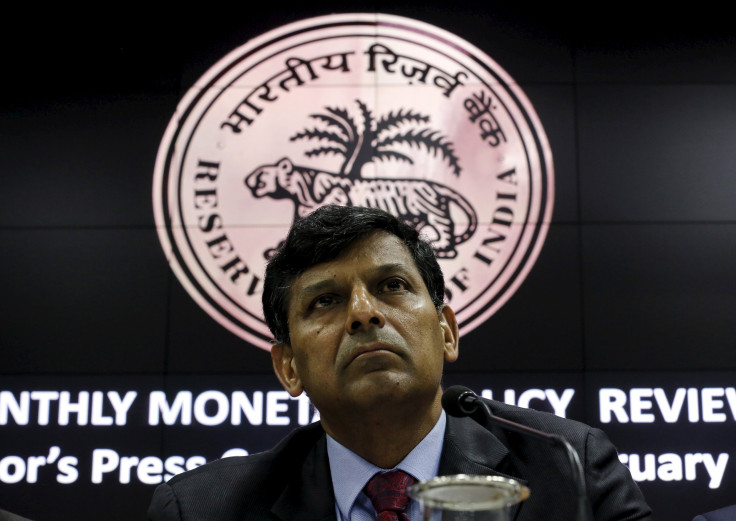Raghuram Rajan To Leave India’s Central Bank, Stock Markets Overcome Jitters

Raghuram Rajan, the governor of India’s central bank, the Reserve Bank of India, will step down from his post at the end of his current term on Sept. 4, and not stick around to see through the reforms he had begun in Asia’s third-largest economy, he announced in an open letter to RBI staff Saturday. The sudden news shocked many in the country, sent the rupee diving and stock markets were expected to open lower Monday.
And they did. Both the S&P BSE Sensex, based on the Bombay Stock Exchange, and the more broad-based Nifty 50 Index from the National Stock Exchange, opened trading Monday morning about 0.6 percent lower. However, in less than half an hour, both indexes had recovered and were trading in positive territory.
At 1:00 p.m. local time (3:30 a.m. EDT), the Sensex was trading 0.6 percent higher, while Nifty 50 was up by over 0.5 percent. A sub-index of the bank sector on the National Stock Exchange had also recouped its losses from the morning and was trading flat.
The currency made a comeback too. At about 8:30 a.m. Monday (11:00 p.m. EDT Sunday), the rupee had fallen over 0.7 percent against the dollar, but three hours later, it had made up about half its losses.
Rajan was credited with managing India’s runaway inflation, as well as introducing reforms in the banking sector. India’s public banks were reeling under massive non-performing assets, many of which were loans to big businesses, such as the now-defunct Kingfisher Airlines. Going against government expectations, he also kept interest rates high to keep inflation down at a time when the finance ministry wanted lower rates to help growth.
There are indications that Rajan had disagreements with the government and felt his independence being challenged. In his letter, he said he had been open to seeing the outcome of changes he introduced, but “on due reflection, and after consultation with the government, I want to share with you that I will be returning to academia when my term as governor ends on Sept. 4, 2016.”
Analysts don’t expect Rajan’s departure to change things much on the ground. In a note, Bank of America Merrill Lynch said it continues “to expect a final 25 basis point cut on August 9 assuming the Met's [India’s meteorological department] forecast of 106% of normal monsoon.” It also expects RBI to intervene to soothe any volatility in the rupee.
However, there are others who warn of a near-term impact. Rajan’s “ill-timed exit… is likely to dampen investor sentiment towards India” in the near term since “the inflation outlook is turning less certain,” according to Oxford Economics.
Before he took over the reins at RBI, Rajan had been the youngest chief economist at the International Monetary Fund. He was a professor of finance at the University of Chicago, which is where he plans to return after his current term as India’s central banker.
© Copyright IBTimes 2024. All rights reserved.




















